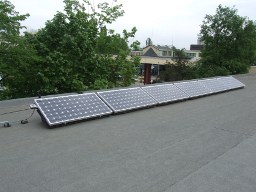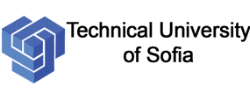 |
Country: Bulgaria |  |
||
| Submit Testing/Consulting Request | ||||
Description: TECHNICAL UNIVERSITY of Sofia (TUS) is the largest higher engineering school in Bulgaria with long years of experience in training engineers. Founded in 1945 as State Polytechnic and renamed in 1956 into Higher Institute of Mechanical and Electrical Engineering, in 1995 the Technical University of Sofia was set up. Since then, 55 000 engineers have graduated and contributed to the development of Bulgarian industry with the knowledge and skills acquired here.
The Technical University of Sofia trains specialists in degree engineering courses essential for the industrial development:
- Mechanical and electrical engineering
- Electronics
- Power generation
- Transport
- Automation
- Computer science and telecommunications
- Textile engineering
- Industrial management
Through its representatives, TUS participates in the activities of many international scientific organizations and TUS has signed cooperation agreements with 42 Schools of Higher Education in 16 countries.
The main Faculties related with Energy field are the Faculty of Electronics and Technologies, Faculty of Automatics and Faculty of Electrical Engineering, through their Laboratories and specialists. The Research and Development Sector (R&DS) is a unit of the TU Sofia whose tasks are related to the organization, administration and service of the research activities under contract with the National and International research programs.
Ð
CPCIEL Laboratory - Smart building control systems
Description: The new CPCIEL laboratory part focuses its capabilities on energy control systems:
- Simulation and control of domestic loads including smart building systems
- Combination of flexible and inflexible loads
- Optimisation of electricity loads combining industrial and domestic ones
Programmable logic controllers
Description: For building automation
Models for Smart Buildings energy
HIL Structure
Description: Including real control systems and building models
IIoT
Description: Based on OPC communication
Power Electronics Supply Laboratory (PESL)
Description: The research of the PESL focuses on power systems for wireless charging - e.g. of EV Li-ion batteries. Also flexible control of the high frequency (HF) inverter and interference generated by wireless power transfer equipment in a specific frequency range are current topics.
Power Electronics Laboratory (PEL)
Description: The Power Electronics laboratory is equipped with physical models of different type electrical energy converters and the measurement apparatus for investigations: AC/DC, DC/AC current or voltage inverters, DC/DC converters, Active power filters, Digital oscilloscopes, Power Quality Analyzer, Simulation Software, Control Systems, Computer systems for modeling the power electronics devices. Wind generator physical model stand is realized.
Hybrid installation of a LV microgrid including two SMA inverters for Network connected and Island operation, battery storage, controllable AC loads Chroma AC 63802, monitoring with Internet connection. In 2012, the installation was equipped with a SCADA and SIEMENS PLC based Control System.
The lab is in operation since 2002 and currently run by 8 employees. In the lab area of 60m², a power range of 15 kW is possible.
Technical specifications (PDF)
Description: 12V to 220V, 50Hz
TU-Sofia Personal computers -3 p.
Description: For design of hybrid systems and training
TU-Sofia single phase and three phase AC/DC converters
TU-Sofia single phase series active power filter
Description: For power quality correction
TU-Sofia single phase shunt active power filter
Description: Active filter for power factor correction
LV microgrid
Description: Hybrid installation of LV microgrid including two SMA inverters for Network connected and Island operation, battery storage, controllable AC loads Chroma AC 63802, monitoring with Internet connection. SCADA and SIEMENS PLC based Control System.
SCADA control system
Description: For PV installation
Description: Multifunction power quality analyzer with complete selection of test functions and diagnostics tools for wide range of applications
Plexim PLECS
Description: Simulation Software
Spectrumdigital TMS320LF2407 Evaluation M
Description: for Control System design
Spectrumdigital TMS320F2812 Evaluation Mo
Description: for Control System design
Tektronix USA TDS 1012
Description: Digital Storage Oscilloscope
Tektronix USA TDS 2012
Description: Digital Storage Oscilloscope
Tektronix USA TDS 2024
Description: Digital Storage Ocsilloscope
Renewable Energy Sources (RES) Laboratory
Description: Laboratory on Renewable Energy Sources. Equipped with a hybrid system with different energy sources. Study of RES characteristics and hybrid systems behaviour.
Technical specifications (PDF)
Hybrid system with RES
Description: Hybrid system with wind generator, PV, thermal collector and inverter
Voltcraft Germany Inverter with sinusoidal output
Description: Inverter 24VDC to220V/50Hz with sinusoidal output voltage
MASTERVOLT USA Inverter-rectifier
MASTERVOLT COMBI 1500, 24VDC to 220V/50Hz
Description: Inverter-rectifier 24VDC to 220V/50Hz
DEGREANE France Meteorological station AURIA 12E
Description: Meteorological station for measuring and storing data for temperature, global radiation, wind speed and direction, pressure, humidity.
National Instruments USA Monitoring system
Description: System for monitoring of a hybrid RES system
PHOTOWATT France Photovoltaic generator
Description: Photovoltaic generator – 6 panels PWX500 with charge controller PWR1022
Giordano France Solar thermal collector CORTEC 2 with vacuum tubes
Description: Solar thermal collector CORTEC 2 with vacuum tubes equipped with pumps, boiler, heat exchanger and a convector
ELPROM Bulgaria Test equipment Ð induction generator
Description: Test equipment for induction generator
ELPROM Bulgaria Test equipment Ð synchronous generator
Description: Test equipment for synchronous generator in autonomous mode
ELPROM Bulgaria, ABB Finland Test equipment wind turbine simulation
Description: Equipment for simulation of wind turbine with induction generator in autonomous mode
VERGNET France Wind generator GEV 4
Description: Wind generator with induction generator.
DEGREANE France Meteorological station A
Description: Meteorological station for measuring and storing the data for temperature, global radiation, wind speed and direction, pressure, humidity.
ENERDIS France Power Quality Analyser MA
Description: Multifunction power quality analyzer with complete selection of test functions and diagnostics tools for wide range of applications
Hewlett Packard USA HP54601
Description: Digital Oscilloscopes
Hewlett Packard USA HP 34401A
Description: Precision multimeter, TRMS AC and TRMSAC and DC.
National Instruments USA DAQ system NI USB-6009
Description: Multifunction system for data acquisition
Tektronix USA TDS 320
Description: Digital Oscilloscopes
Tektronix USA Current probe AM503
Description: High frequency current probe
Voltcraft Germany Infrared thermometer IR-3
Description: Infrared thermometer
Electrical Power System Stability Laboratory (EPSSLab)
Description: The research focus of the Electrical Power System Stability Laboratory is in the area of modeling, analysis and management of multiple node Smart grids and Electrical Power Systems with Distributed Energy Resources (DER) and Electric Vehicles (EV). Using a specialized software and hardware research platform, power system stability, reliability, security and interoperability tests of multidimensional distribution networks and microgrids with EV and DER are performed. The computational platforms allow static and time domain estimation of the impact of EV charging, DER control and smart load and storage control strategies on the network. The infrastructure allows also power system stability studies in case of cyber security violations.
The lab is in operation since 2006 and currently run by 3 employees. In the lab, a power range of 15 kW is possible.
- Physical Model for Micro-, Mini-, and Nanogrid Research Testing
- Physical Model Syncrhonous generator based power unit with extended grid support functions
- Physical PV generator emulator
- Programmable DER unit with enhanced grid support functions and synthetic intertia
Technical specifications (PDF)
Microgrid model
Description: Microgrid and nanogrid operation possible
Voltage and frequency controllable three phase AC grid physical model
LV/MV AC Network model 230/400V
AC Pelton turbine hydro generator
Description: Capable to operate as synchronous, asynchronous and doubly fed generator
Bidirectional inverter/charger
Smart load controller
Description: PV Smart load controller and AC smart load controller
Controllable load
Communications, Process Control and Energy Efficiency in Industry Laboratory (CPCEEIL)
Description: The laboratory for Communications, Process Control and Energy Efficiency in Industry Laboratory (CPCEEIL) (Fig.1) is a part of Faculty of Automatics of Technical University of Sofia. The laboratory consists thermal heating system, chemical reactor, vacuum furnace, pressure box for paper industry and other physical models of real industrial equipment. The control systems are PLC based process control systems. All of the facilities are equipped with individual electrical power analyzers. The control systems are networked with PROFIBUS, PROFINET and MODBUS TCP communication interface and are included in a central SCADA system. The laboratory is equipped with industrial HMI panels for process control. Algorithms for energy saving process control, demand side energy forecasting and electrical loads control and optimization are developed and tested in the laboratory. The algorithms are implemented in programmable logic controllers (PLC). OPC, SQL and FTP servers are installed for data acquisition and secure data transfer over the Internet. Support of IEC61850 and IEC60870 protocols is included. Data mapping between SIMATIC NET process data and IEC61850 in done in the laboratory.
The lab covers an area of 40m² and is currently run by 4 employees. In the lab, a power range of 10 kW is possible.
Technical specifications (PDF)
Model of vacuum furness
Model of district heating
Process control systems based on SIMATIC S7-300, S7-1200
Building control systems based on Siemens PLCs
High voltage laboratory
Description: High Voltage Laboratory consist of stands for testing technical parameters of electrical equipment - HV AC test up to 332 kVrms; HV impulse test up to 750 kVm; HV DC test up to 125 kV; High current test up to 25 kArms; Measurement of Power Quality; Study of partial discharges; resistivity, capacitance and tan of electrical insulation; electrical breakdown of solid, liquid and gaseous insulations; monitoring of condition of electrical insulation in service. Stands for real-time simulation of synchronous generator interconnection to electrical network with power factor regulation and for transition process’s testing of DER interconnection to electrical network are available.
Technical specifications (PDF)
Terawatt METRA HIT 29S
Description:Precision multimeter, power meter and power disturbance measuring instrument with integrated memory for universal use in the field of energy electronics, and for high bandwidth electronics application.
Metred Euro test MI 2086 ST
Description: Multifunctional digital measuring instrument for low voltage electrical installation safety testing.
Metred MA 2067 Demo Board
Description: Tool for training and education
Metred TeraOhm MI 2077
Description: Digital HV measuring instrument with maximum test voltage up to 5000 V DC and resistance measuring range up to 5 TΩ
Mitre Multiservice MI 2171
Description: Digital measuring instrument for complete electrical safety testing of machines, portable appliances, switchgear and other electric devices
Advanced Control Systems Laboratory
Description: Advanced Control Systems Laboratory is oriented to research and applications in the area of real- time control and simulation. In the area of the proposed research ACSL has expertise in control of small water turbines and huge expertise in the area of modeling many kinds of objects including power generators. ACSL has expertise in computerized modeling (fully numerical and mixed numerical and electronics) of objects for testing and experimental purposes. New research trends in the area of modeling are based on FPGAs& fast computers (incl. DSPs) models. Infrastructure includes specialized computer equipment for modeling industrial objects (based on SBC, FPGAs, DSPs and RISC), developing systems for abstract models representation, implementation and testing.
Technical specifications (PDF)
Electrical Vehicles Laboratory
Description: Electrical Vehicles Laboratory (EVL) serves for modeling, testing, research and development of low power drive trains for small electric vehicles –hybrid and plug-in types. The laboratory enables carrying out mechanical and electrical tests ofsmall internal combustion engines, drive electricalmotors, drive trains with fuel cells and ultracapacitors. The work on electronics systems of the EV is carried out in cooperation with Power Electronics Laboratory in the frame of Research and Development Sector (TUS R&DS)
Insulation test Laboratory
Description: Measurement of capacitance and tan d, volume resistivity and surface resistivity, electrical breakdown of solid, liquid and gaseous insulations, study of partial discharges.
Description: 12V to 220V, 50Hz
TU-Sofia Personal computers -3 p.
Description: For design of hybrid systems and training
TU-Sofia single phase and three phase AC/DC converters
TU-Sofia single phase series active power filter
Description: For power quality correction
TU-Sofia single phase shunt active power filter
Description: Active filter for power factor correction
Description: Multifunction power quality analyzer with complete selection of test functions and diagnostics tools for wide range of applications
Plexim PLECS
Description: Simulation Software
Spectrumdigital TMS320LF2407 Evaluation M
Description: for Control System design
Spectrumdigital TMS320F2812 Evaluation Mo
Description: for Control System design
Tektronix USA TDS 1012
Description: Digital Storage Oscilloscope
Tektronix USA TDS 2012
Description: Digital Storage Oscilloscope
Tektronix USA TDS 2024
Description: Digital Storage Ocsilloscope
Plexim PLECS (at Power Electronics Laboratory (PEL))
Description: Simulation software for analysis of power electronic circuits and devices.
STATUS (at Power System Stability Laboratory (PSSLab))
Description: Computational platform for power system analysis.
NEPLAN (at Power System Stability Laboratory (PSSLab))
Description: Planning and information system software for electrical transmission, distribution and industrial networks.
Honeywell UniSim Design (at Communications, Process Control and Energy Efficiency in Industry Laboratory (CPCEEIL))
- IEC 61000-3-2/EN 61000-3-2 (at Power Electronics Laboratory (PEL))
The laboratories are certified according to ISO9001:2008 and ISO 50001.
Testing services at PEL:
- Research on network connected and island operation of hybrid installation with controllable loads and storage.
- Research on power flow in the hybrid system – steady state applications, methods and models for distributed systems with improved power factor relatively to the electrical network.
- Implementation of Active Power Filters for improvement of Power Quality and Energy Efficiency.
- Computer aided design and simulation with MATLAB, PSIM, PLECS and OrCAD Design Centre of DC/DC, DC/AC and AC/AC converters.
- Measurements of the Active power/Apparent power/ Reactive power /Power factor/Displacement power factor/Voltage/Current/Energy usage and Total Harmonic Distortion (THD) in compliances with IEC 61000-3-2/EN 61000-3-2.
- Electronic energy converters for power systems.
Testing services at PSSLab:
- Power system stability analysis.
- Modeling, analysis and testing of multiple node Smart grids and Electrical Power Systems with Electric Vehicles (EV) and DER.
- Time domain tests on the interoperability between distributed charging devices and electrical networks with DER.
- Estimation of the impact of different charging concepts on electrical network state parameters.
- Analysis of bidirectional inverter-charger mobile applications considering their power management capability.
- Analytical stability and grid interoperability testing of multi node electrical grids with DER and EV charging units.
- Low voltage and middle voltage distribution networks smart power management tests.
- EV bidirectional smart charging strategies testing.
- Primary, secondary and tertiary power system regulation.
- Estimation and testing of smart load load control strategies.
- Short and mid-term PV generation prediction.
- Grid overloading and congestion management.
- Smart bidirectional EV charging tests.
- Micro- and nanogrid operation components testing.
Testing services at CPCEEIL:
- Control systems.
- Optimization algorithms.
- Network communications.
Testing services at CPCIEL:
- Electricity consumption and power production forecasting and optimisation.
- Industrical and domestic loads optimal control.
- Energy monitoring and managemant systems including ISO 50001.
- SCADA Technology present in lab: Siemens WinCC
- Most important communication standards in Bulgaria: ISO 61850, ISO 61870-103,104, PROFIBUS, PROFINET, BACNet, ModbusTCP
- Most important communication protocols in Bulgaria: PROFIBUS,PROFINET, ModbusTCP, ISO 61850
- Most important equipment vendors for SCADA components in Bulgaria: SIEMENS, Schneider
- Most used broadband technology to control SCADA systems in Bulgaria: VPN tunneling
- Most important Bulgarian standardisation organisation: Bulgarian Institutes of Standardisation
- Communication protocol, considered as most important in the future: ISO 61850
- R. Stanev, M. Georgiev, A. Krusteva:
Interoperability Analysis of Electrical Networks with Electric Vehicle Charging Devices and Distributed Energy Resources
International Journal of Distributed Energy Resources and Smart Grids, vol.11, no. 3, pp.195-210, 2015. - E. N. Baikova, S. S. Valtchev, R. Melício, V. Fernão Pires, A. Krusteva, G. Gigov:
Study on Electromagnetic Emissions from Wireless Energy Transfer
IEEE International Power Electronics and Motion Control Conference (PEMC), pp.492-497, Varna (BG), 25-28 September, 2016. - M. Georgiev, R. Stanev, A. Krusteva:
Flexible load control in electric power systems with distributed energy resources and electric vehicle charging
IEEE International Power Electronics and Motion Control Conference (PEMC), pp.1034-1040, Varna (BG), 25-28 September, 2016. - G. Gigov, A. Krusteva, S. Valtchev:
Experimental study of wireless inductive system for electric vehicles batteries charging
IEEE International Power Electronics and Motion Control Conference (PEMC), pp.286-290, Varna (BG), 25-28 September, 2016. - E. N. Baikova, S. S. Valtchev, R. Melicio, A. Krusteva, V. Fernão Pires:
Study of the Electromagnetic Interference Generated by Wireless Power Transfer Systems
International Review of Electrical Engineering (IREE), vol. 11, no.5, pp.526-534, September/October, 2016. - H. Antchev:
Study Driver Module for IGBT`s
International Journal for Engineering Research and Applications (IJERA), vol.6, no.3 (part 6), pp.77-79, March, 2016. - K. Milanov, M. Slavkova, H.Antchev:
Thyristor Control Driver with Composite Transformer
19th International Symposium on Electrical Apparatus and Technologies (SIELA), Bourgas, (BG), 29 May-1 June, 2016.
last updated: 30.10.2019

